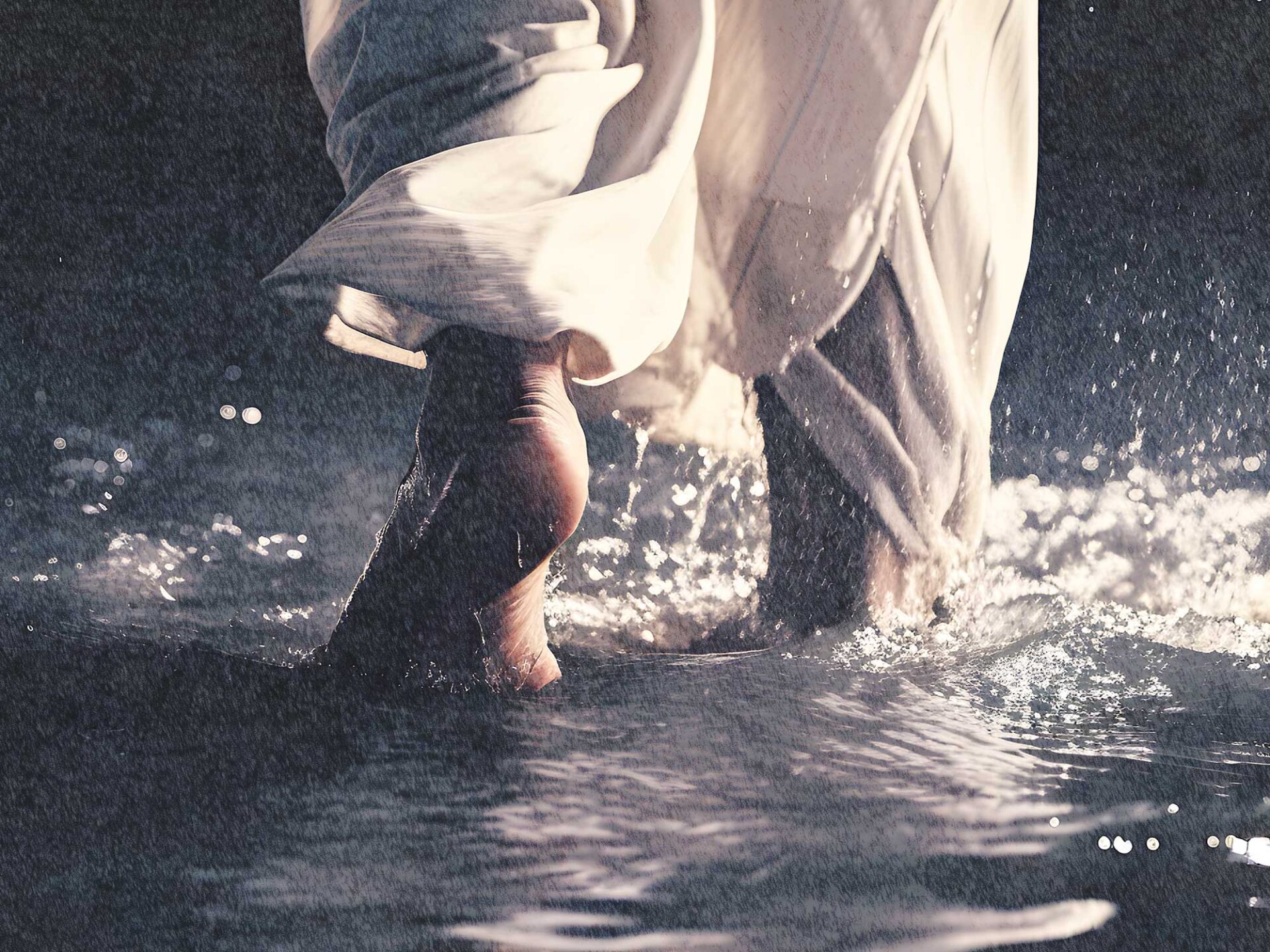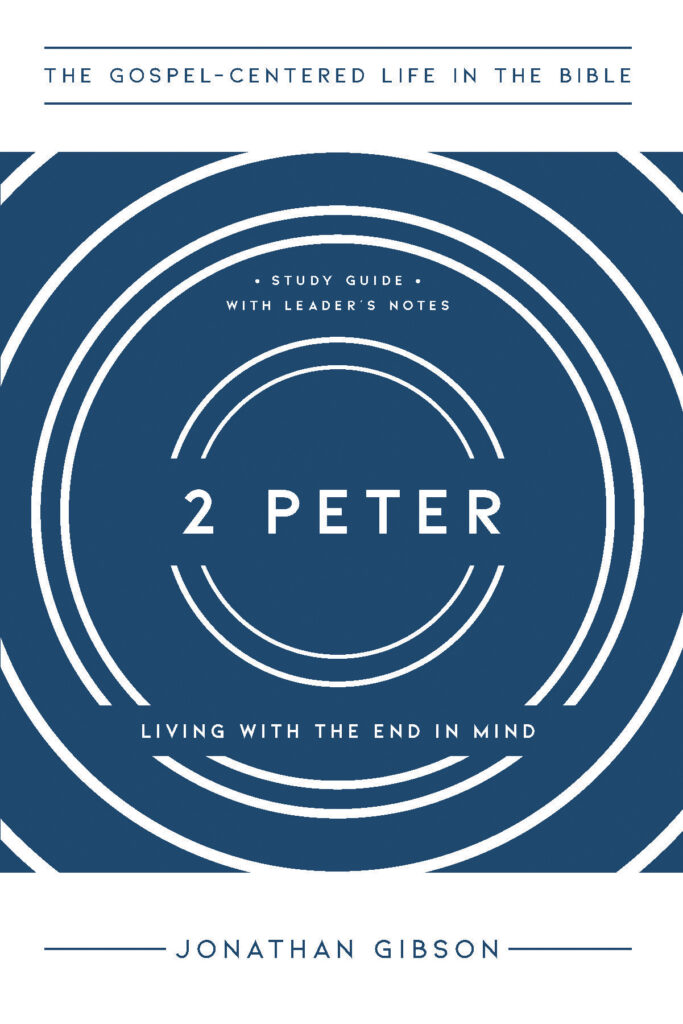Throughout his letter, Peter goes straight to parts of the Bible we might tend to avoid. He brings up accounts we find tricky to explain, or which are even embarrassing, in many cultures today. Creation in six days by the word of God? That’s not what science says. A worldwide flood of judgment? It must be an embellished tale about a local event—the fable about the boat won’t float. Fire and sulfur on a whole city that was perverting God’s design for sex and marriage? That might sound hateful. A talking donkey? Ridiculous.
So we decide, let’s not open those cans of worms. Let’s not give the skeptics and mockers more fuel. Let’s not add to the doubts of doubting Christians. Let’s stay on topic. Just stay on Jesus!
But what kind of Jesus do we have if he is not the world’s Creator and the worldwide Judge? If Christ is not the God who first created all things with just a word, we can hardly expect he will return to recreate the cursed world we live in now. Or if Christ did not form the first man out of dust, we can hardly expect he will raise our bodies from the dead after they have turned to dust. And if Christ did not flood the whole world in judgment, covering the mountaintops, we can hardly expect he will return to rid us of every shred of evil in the coming life. You see, we keep looking at the beginning because it assures us of the ending. And the ending determines how we live today.
So when Peter is confronted with skepticism about Jesus’s return and coming judgment, he goes to creation and the flood. The skeptics wonder where Jesus is if he hasn’t shown up yet. Their underlying premise is that God does not, nor cannot, intervene in the world because nothing has changed since the beginning. But their premise deliberately “forgets” how the beginning itself contains the historical facts they claim to be seeking.
First, there’s creation. By God’s word, he spoke and the waters separated. Then by his word again, he spoke and the waters gathered (Genesis 1:6–10). That’s how the earth was formed—supernaturally. God created everything from nothing and then began to form and fill his world. He was intimately involved in his creation.
Second, there’s the flood. Again God used water, this time to judge the world. And again, the water worked because God had spoken: “For behold, I will bring flood waters upon the earth to destroy all flesh” (Genesis 6:17). The Bible emphasizes the worldwide totality of this, with water high above every mountain (Genesis 7:17–24). That’s how the earth was destroyed—supernaturally. There are other examples too of God’s water-and-word judgment in the Old Testament, like the Egyptians at the Red Sea. But Peter points to the flood because it is a universal event. It is a de-creation of the whole world followed by a re-creation.
For Peter, the creation and the flood are key points in the Bible’s plotline. They both indicate there has in fact been massive divine intervention in the world. God stepped in once to create the world. He stepped in a second time to destroy the world and re-create it.
This means he can step in a third time to destroy the world—this time with fire—and create a new heavens and new earth. God will keep his word.
Now let’s apply this to skepticism we hear today. Theologian B. B. Warfield is reported to have said, “Christianity is unembarrassed supernaturalism.” (Cited in Ian Hamilton, Ephesians, The Lectio Continua: Expository Commentary on the New Testament.) The adjective is important: unembarrassed. How many of us, if we’re honest, get a bit embarrassed when some supernatural aspect of the Bible gets brought up at work or school or when we’re with friends? Maybe it’s the flood, or Jesus walking on water—the kind of things our secular world pokes fun at.
Well, Peter is not embarrassed by any of it. He was present with Jesus when he performed his miracles. He witnessed the transfiguration, walked on water to meet Jesus, and talked with Jesus after his resurrection. The supernatural was real for Peter—he experienced it personally and knew the person behind it. And this is what the church of Jesus Christ needs to recover in our day. We need an unembarrassed confidence in the supernaturalism of Christianity. If we are going to have an impact on the world as we face increasing pressure and questions from our culture, we need to recover our theological nerve. If we are going to hold out to the world, and to our skeptical friends and neighbors, a Savior who really will change everything for them, then we need the Bible’s entire supernatural plotline. And isn’t this what our skeptical friends and neighbors want? Deep down, they want someone to be honest with them about what the future holds and where their lives are heading. Engaging with them on some of the turning points in the Bible plotline, such as creation and the flood, can help them have a clear perspective on how God is going to act in the future because of how he has acted in the past.
Remember, the beginning assures us of the ending, and how we live is with the end in mind. We will only know as Christians how to live in the present if we are clear and confident about the future.
Excerpted from 2 Peter: Living with the End in Mind © 2023 by Jonathan Gibson. Used with permission of New Growth Press. May not be reproduced without prior written permission.






